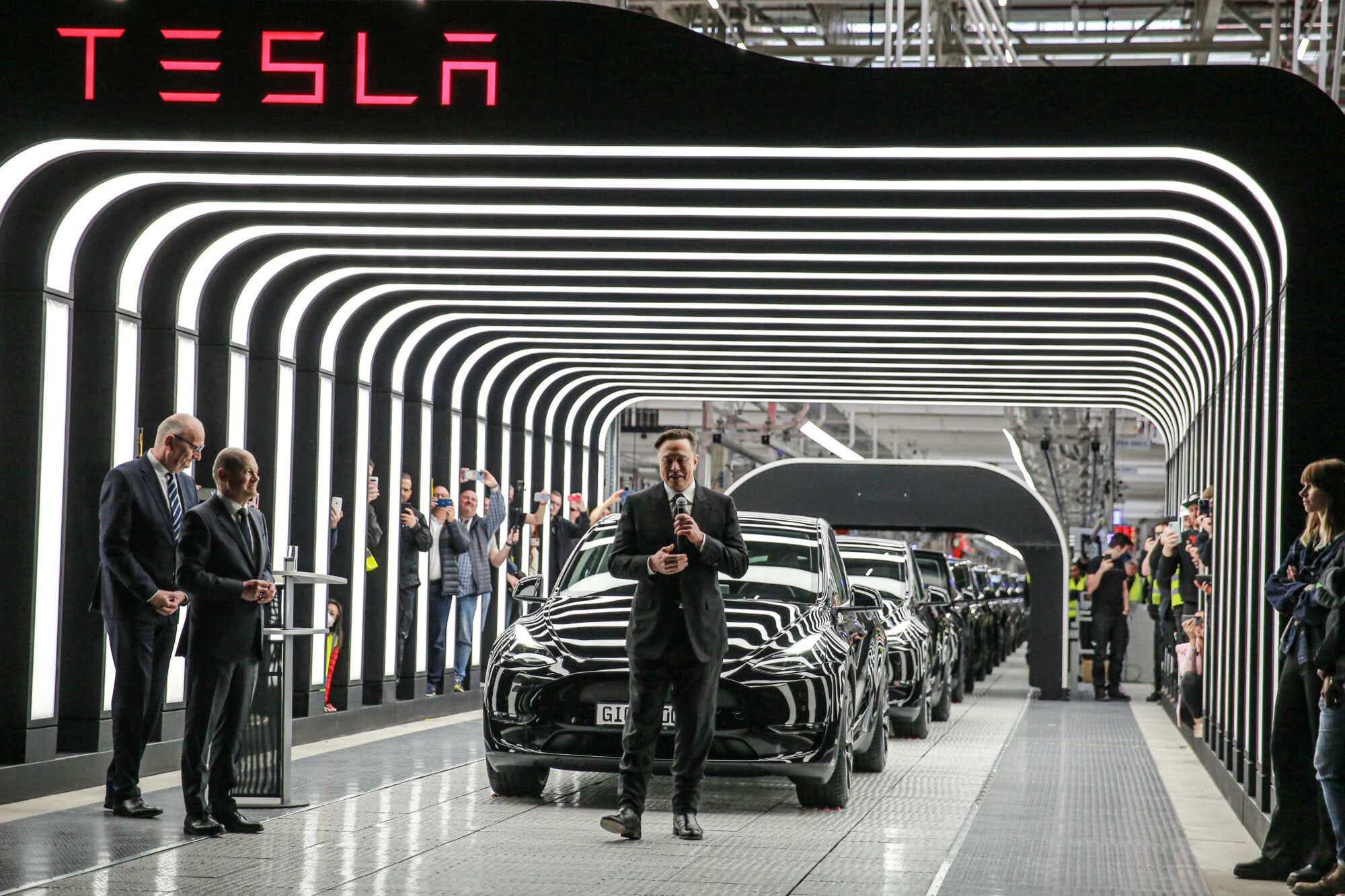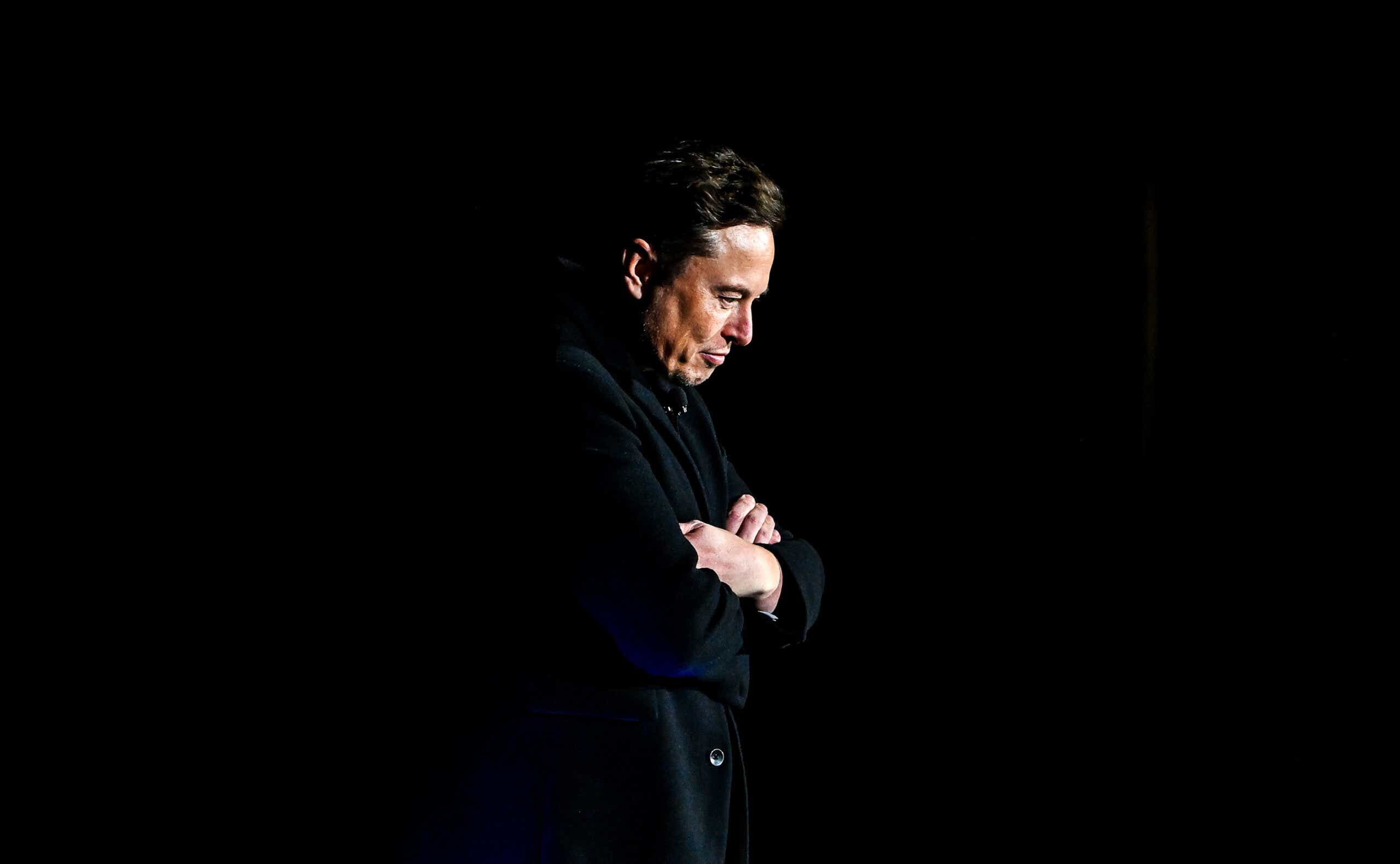Manufacturers have been toying with the idea of the electric car since the Model T. But even into the early 2000s, most EVs still looked and handled a little “like golf carts,” says Tim Higgins, author of Power Play: Tesla, Elon Musk, and the Bet of the Century. “Companies really struggled to make them something desirable,” he says.
Then came Tesla. Its Roadster was a sleek, sexy, luxury vehicle that became coveted, particularly among the Silicon Valley set and other progressive, well-to-do Americans looking to prove their environmental bona fides. Ultimately, Tesla succeeded where other legacy automakers had failed: It made electric cars cool.
It’s a marketing success story, one made even more astonishing because the company, to this day, doesn’t spend anything on advertising. Instead, it’s relied heavily on its CEO Elon Musk. His magnetism and unique ability to navigate social media and generate buzz has proven a powerful sales tool. It wasn’t just an elegant, eco-friendly car that have drawn consumers and investors to Tesla — but Musk himself.
“He sold this idea that he was tackling the world’s biggest problems, whether it was trying to usher in renewable energies or making mankind a multiplanetary species with SpaceX,” Higgins says.
But in recent months, the public’s perception of the billionaire seems to be shifting — and that may have a major impact on Tesla’s future.
Musk’s murky public perception
Since the billionaire bought Twitter last year, he’s become even more outspoken online and, many would say, more polarizing. In recent months, he’s urged users to vote Republican, reinstated former President Donald Trump’s account, and welcomed Kanye West back to the platform after the rapper’s antisemitic posts. (West was later booted from the site again for tweeting a swastika.) In the name of free speech, he also overhauled Twitter's content moderation standards — a move which researchers say has led to the rapid rise in hate speech and misinformation on the platform.
But when a brand’s fate is so closely tied to its CEO’s celebrity, that leader’s personal politics can quickly become a business matter. Data from the U.K.-based market research firm YouGov suggests Musk’s behavior is starting to take a toll. In November, a YouGov poll found that for the first time since it started tracking Tesla sentiment in 2016, the majority of respondents in the U.S. said they had a negative perception of the automaker. According to YouGov, the company’s net favorability now sits at 49 percent.
What’s more is that Musk’s lurch to the right seems to be turning off liberal consumers, at least according to data from Morning Consult. The research firm found last fall in limited surveys that Tesla’s net favorability among American adults dipped by six points between October and November — following Musk’s Twitter takeover. Among Republicans, it actually rose about 4 points; but among Democrats, it cratered by more than 20. One self-described liberal Tesla owner recounted his own swift disillusionment in an op-ed for the Los Angeles Times, writing that while he was once “proud” to be “seen driving a vehicle that displayed my concern for the environment,” he now feels “horrified to be associated” with it.

Are Elon’s antics hurting sales?
What does this all mean for Tesla’s bottom line? That's definitely something to watch. The company made 1.3 million deliveries in 2022 — up 40 percent from the year prior. But it could be an issue down the road if more Biden voters, who make up the bulk of Tesla’s consumer base, grow to shun the brand, as Jordan Marlatt, Morning Consult analyst, writes: “If the Tesla brand becomes increasingly right-leaning, that could put it out of alignment with core electric vehicle purchasing profiles, which lean more liberal.”
And there’s some anecdotal evidence that this may come to bear. Business Insider interviewed a handful of former Tesla loyalists who have become so fed up with the CEO that they’re ditching their cars.
But it’s not just consumers who are upset; investors are frustrated, too. There’s growing concern that as Musk becomes more mired in the drama at Twitter, he’s being pulled further away from Tesla at a particularly trying time for the company. He’ll go to trial this week for a class action lawsuit brought against him by Tesla investors. If he loses, he and Tesla could owe billions in damages.
And though the company put a lot of cars on the road last year, its stock price sank about 65 percent over 2022, amounting to a loss of more than $700 billion in market value. Sales are slowing too, forcing the company to slash prices on its cars by as much as 20 percent. That’s partly because even though it remains the top-selling electric car brand in the U.S., its dominance is eroding. Legacy car companies, from Chevy to BMW, have developed sophisticated, affordable electric models, which poses some major competition for Tesla, Higgins says.
Could there be an upside for Tesla?
Recently, there’s been discussion about whether Musk’s personal politics are transforming Tesla into what Marlatt and others have called a “partisan brand.” Think Chick-fil-A or Hobby Lobby on the right, Patagonia on the left, says Brad Berens, principal at Big Idea Digital Consulting and a senior research fellow at USC’s Center for the Digital Future. These are brand identities that have become intertwined with a political ideology and have leveraged that to court consumers.
Berens thinks it’s possible that this is what’s behind Musk’s shift to the right. “He’s opening up the half of the market that wouldn’t have even dreamed of buying a liberal, snowflake Tesla before,” he says. “It’s a form of virtue signaling.” He also argues that Musk’s aim isn’t to make Tesla a conservative brand, but rather to buff away its liberal affiliation.
Now, whether Musk's decision to tweet Paul Pelosi conspiracy theories is just a ploy to sell more cars or not is certainly up for debate. But either way, it could be fruitful from a sales perspective, Higgins says.
“The reality is Tesla’s market share in the U.S. for all cars, not just electric, is rather small,” he says. (That market share currently sits at less than 1 percent.) “They have a lot of room to grow, and they’re going to need to have a diverse group of people in their tent to do so.”
For an automaker, Tesla is still in its infancy, with plenty of time to make and remake its brand story, Higgins says. That means we'll have to keep watching whether Musk can continue to use his marketing magic — and be able to recast the EV as an object of desire for everyone on the political spectrum.









